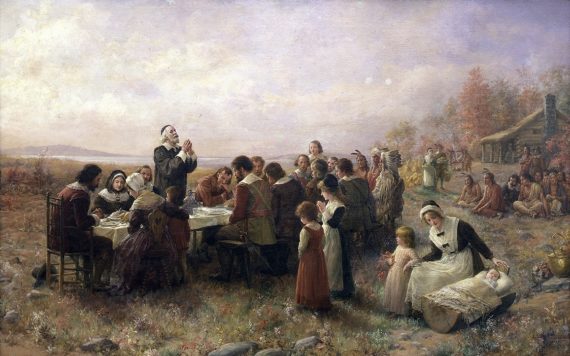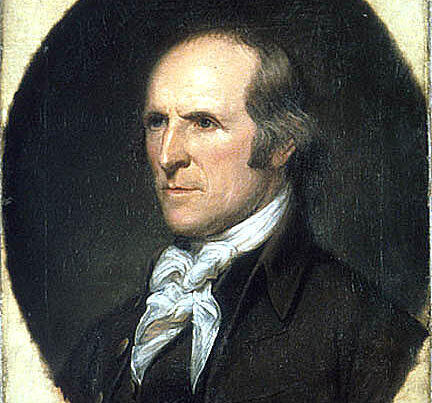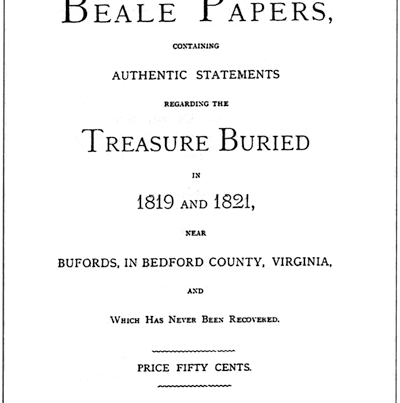From the book, Thanksgiving: An American Holiday, An American History (Facts on File, 1984).
The long-standing practice of delivering political sermons on Thanksgiving Day, which made Thanksgiving both a revolutionary holiday and the occasion of Federalist era political contention, now made Thanksgiving the tool of free-soilers and abolitionists. Thanksgiving was, above all, a New England holiday, and New England was abolitionist territory; but the association was broader than this.
Thanksgiving as Politics in the North
Throughout the middle and western states, Thanksgiving was taken to heart by those same evangelical Protestant denominations that made abolition a religious cause. Antislavery and abolitionist positions were the political beliefs of a small group of citizens in colonial America and during the early years of the republic; but in the 1830s and 40s, antislavery sentiments became an article of faith for northern Protestants, causing denominations to split into northern and southern branches. Many ministers who preferred to deliver strictly spiritual sermons on the Sabbath felt impelled to speak out against the evils of slavery on Thanksgiving.
Ministers did not take a unified position on slavery. Some were free-soilers, opposing the extension of slavery into new territories, without urging abolition in the South; others urged immediate emancipation for all slaves. Many grew stronger in their opposition as time passed, and the abolition movement gathered strength. Reverend Henry Ward Beecher, brother of Harriet Beecher Stowe, opposed slavery in his Thanksgiving sermon of 1847 more on the grounds that it degraded white Americans than out of direct sympathy for the slaves. Slaves, Beecher told his fashionable congregation at the Plymouth Church in Brooklyn, “cannot enlighten themselves, but they can darken those around them, they cannot preserve their own moral purity, but they can make others participants of their degradation.”
It was this arrogant northern eagerness to tell southerners that slavery was not merely wrong, but bad for them as well, this facile northern tendency to condemn all southern society and not slavery as a discrete institution, that made southerners hate Yankees. Southerners regarded themselves as law-abiding pillars of society whose institutions were under attack by a lawless band of radical extremists.
Many northerners, fearful that pressing the South too hard on the question of slavery would lead to civil war, urged patience, moderation and compromise. The Fugitive Slave Law of 1850 was part of the last great compromise aimed at averting civil war. Southern congressmen agreed to admit California as free territory, but they demanded an honest northern effort to return fugitive slaves. To abolitionists, such a demand was anathema, but other citizens thought the price ought to be paid if it would buy national harmony. “The question,” Reverend Icabod Spencer, of the Second Presbyterian Church of Brooklyn, said in his Thanksgiving sermon, “w not whether slavery is right, or the Fugitive Slave Law right. . . . The question is, shall Law be put in force; and the government of the country stand; or shall Law be resisted, and the government of the country disobeyed, and the nation plunged into all the horrors of civil war?”
Slavery was the burning issue of the 1850s. Abolitionists, slaveholders and the majority of people who hoped that somehow the question could be settled without bloodshed, were alike in their unremitting need to confront the issue. Should the Fugitive Slave Law be enforced or righteously violated? Should western territories be settled as free soil or slave? Was voluntary or peaceable abolition possible? Did the North have any right to question the slavery compromises enshrined in the Constitution itself?
On Thanksgiving Day, when the nation paused to count its blessings, the questions posed by slavery could not be overlooked. They were, in the words of Texas Governor P. Hansborough Bell’s proclamation for Thanksgiving Day 1850: “The vast and perplexing questions which have agitated and divided the public councils.”
In fact, the governor of Texas was not terribly perplexed by the proper solution to the slavery question. It lay in “maintaining our great charter in its original form, [the Constitution allowed both slave states and free] undefiled by false interpetations, unscathed by the unworthy attacks of ignorance or fanaticism. . . .” In the North, however, a growing number of “fanatics” were unwilling to abide the injustice of slavery merely because this evil institution was written into the Constitution. “Pray for the hastening of that day when all the oppressed shall go free . . .” urged the Cleveland Daily True Democrat in its Thanksgiving editorial of 1852, and in most northern churches, the faithful gathered to do just that.
Despite the strident tone of many Thanksgiving sermons, there were people of both North and South who felt that Thanksgiving Day could be a useful tool in the effort to preserve the Union in harmony and compromise. The hope, expressed by Sarah Josepha Hale, editor of Godey’s Lady’s Book, was that a national holiday on which all Americans gathered to count their blessings would encourage a feeling of national unity and make all parties more willing to compromise. By the 1850s, governors of most northern, southern and western states were in fact proclaiming Thanksgiving Day on the last Thursday in November— but not the governors of Virginia.
Thanksgiving as Politics in the South
Many Virginians did celebrate Thanksgiving Day. Members of the Episcopal church observed the first Thursday in November as Thanksgiving, and the Presbyterian Synod annually proclaimed a Thanksgiving Day for its communicants. In 1853, Reverend John Knote wrote to Governor Joseph Johnson urging him to declare Thanksgiving Day for Virginians. Johnson declined, citing the opinion of Virginia’s most illustrious govemer, Thomas Jefferson, who believed that separation of church and state proscribed the governor from making such a declaration. In refusing to declare Thanksgiving, Governor Johnson garnered the political support of a group of pro-slavery Virginia gentlemen angered by the increasingly close alliance between abolitionists and the Protestant clergy. These men wrote to praise Johnson for refusing “to gratify and serve the base purposes of the hypocritical clergy and their blind and base followers.”
In the summer of 1855, Virginia was devastated by an epidemic of yellow fever that killed 2,000 citizens. As the plague lifted with the coming of cool weather, Governor Johnson acceded to demands that he declare a day of Thanksgiving. He wrote, “A portion of the people of this Commonwealth having been afflicted by the ravages of a pestilence scarcely paralleled in the annals of history. . . . I . . . earnestly recommend that all, without distinction of creed or party, with one accord, unite in rendering homage and thanksgiving to God for his blessings. . . .”
This was a special thanksgiving, however, held expressly in gratitude for the end of the epidemic, not the importation of a Yankee holiday to Virginia; and, to underscore the distinction, Johnson set November 15 as Thanksgiving, while the other governors who issued proclamations ordered celebrations on November 29.
In Richmond, the Daily Dispatch reported that shops and businesses closed, churches were full and most people said they favored an annual Thanksgiving. Virginians, however, now elected Governor Henry H. Wise, a slave-owning, fire-eating advocate of states’ rights who wanted nothing to do with a Yankee holiday. His first autumn in office, Wise received, as each governor did every year, a polite letter from Mrs. Sarah H. Hale, who, like Wise, supported Democratic candidate James Buchanan for the presidency. “I am aware,” wrote Mrs. Hale, “that Virginia has not often joined in keeping this Festival; but this year, when, as I trust, the Democratic party will gain such a victory as will insure the perpetuity of our beloved Union, surely the ‘Old Dominion’ will gladly keep the Day of Thanksgiving—and lead in the Festival of the States.”
In no uncertain terms, Wise told Mrs. Hale what he thought of her pet holiday: “This theatrical national claptrap of Thanksgiving has aided other causes in setting thousands of pulpits to preaching ‘‘Christian politics‘ instead of humbly letting the carnal Kingdom alone and preaching singly Christ crucified.” By “other causes” Governor Wise meant abolition, and Wise was not a man to abet a Yankee abolitionist holiday.
Left to their own resources, Norfolk, Portsmouth and several other Virginia communities celebrated Thanksgiving Day in 1856 without a gubernatorial proclamation. An editorial in the Richmond Daily Dispatch regretted the governor’s decision, noting that “Such a day would, at this season, be peculiarly appropriate in the Southern States, not only on account of the continued blessings of peace and plenty, but for the preservation of that Union in which the liberties and happiness of the South, the North, and the whole human race are involved.” But even this editor, who longed to see Thanksgiving Day proclaimed, admitted that in many churches “the prevailing peculiarity of the Thanksgiving worship [was] embodied in the language of the Pharisee—‘God, I thank thee that I am not as other men, as publicans and sinners, and, above all, as slave holders.’ ”
On Thanksgiving Day, 1857, Reverend Samuel T. Herron delivered to the Associate Presbyterian Church of New Lisbon, Ohio, just such a sermon as Virginia’s Governor Wise reviled: “In an evil hour,” Herron told his congregation, “slavery, like Ahab with Naboth’s vineyard, looked upon Kansas. She saw her beautiful prairies and her fertile valleys, and coveted them. But she could not enter there, like Eden; a cherub and flaming sword kept the way of that land for the hardy sons of freedom.”
Attempts at Compromise
Under the terms of the Kansas-Nebraska Act of May 25. 1854, both territories were opened to settlement; whether they would become free soil or slave would depend on the decision of the settlers, under the principle of popular sovereignty. It was widely assumed that Missourians would immigrate to secure Kansas as slave territory and that Iowans would move to make Nebraska free soil. Nobody except old Sam Houston in Texas chose to recall that the entire territory had already been given to the Indians for “as long as grass shall grow and water run.” The North was outraged by this repeal of the Missouri Compromise of 1820. which had barred the extension of slavery into new territories lying north of the 36’ 30′ parallel, as all of Kansas did. New England responded by making the Fugitive Slave Law a dead letter. “As easily.” wrote a southern visitor in Boston, “could a law prohibiting the eating of codfish and pumpkin pies be enforced.”
As expected. Missiourians poured over the border to secure Kansas as a slave state; but they had not reckoned with the depth of feeling in New England on the issue of free soil. Massachusetts abolitionists immediately formed the Emigrant Aid Company and sent thousands of new Englanders streaming westward toward Kansas in a high-spirited antislavery crusade, armed with a precise, new, breech-loading weapon, the Sharps rifle.
When the first free-soilers reached Kansas in 1854. the situation was far too tumultuous for any politician to issue a Thanksgiving proclamation. But, in the words of Mrs. Levi Gates of Lawrence, Kansas, “Why, we can have Thanksgiving every bit as well out here and a Thanksgiving Dinner that will be second to none. Lil cook it myself and there’ll be plenty of men folks to eat it. Poor things. They haven’t had much sure enough cooking since they come out here.” Mrs. Gates set to cooking for her family and for everyone else in Lawrence hungry for some “sure enough cooking,” but her hospitality did not extend to the native inhabitants.
That day a lot of Indians filed into the tent and sat on the ground, pointing to the mince pies and then to their mouths. Fanny, my little girl, laughed and clapped her hands when she saw their gay blankets and headresses and their odd gestures but I was frightened. My husband wasn’t there. Still, I couldn’t let those Indians eat up my precious mince pies so I caught up the gun and, pointing it at them, ordered them in my gruffest voice to go away. And so we saved the pies.
Open warfare broke out in Kansas in 1856 between free-soil and pro-slavery settlers, but abolitionists willing to move west outnumbered slaveholders, and Kansas entered the Union in 1861 as a free state. A prelude to that victory was the Thanksgiving Day proclaimed for December 25, 1855, by Colonel James Lane, chairman of the Free State executive committee of Kansas Territory, which met in Topeka in the confusing days when Kansas had two rival territorial governments. By 1856, Kansas again had a single government led by Governor John Geary, who proclaimed the territory’s first official Thanksgiving. It is not to be imagined that many slaveholding southern settlers joined in the celebration. The partisan nature of the holiday was made clear in the words of the proclamation:
While insult, outrage, and death has been inflicted upon many of our unoffending citizens by those whom we desire to recognize as brothers, while the attempt is being made to inflict upon us the most galling and debasing slavery, our lives have been spared and a way pointed out by which without imbuing our hands in blood, we can secure the blessings of liberty and good government.
The time for compromise had already passed when the fighting began in Kansas, but northerners and southerners alike continued to pray, to hope and to work for peace. Reverend A. Hartpence spoke for many southerners when he cried out to his congregation in Franklin, Tennessee, on Thanksgiving Day, 1857, that
Hallucination affects the ultrist. He seems blind to consequences. How else can he fail to see the dire results of his policy as suicidal to all concerned? Though our hills become altars for the sacrifice of brothers, and our rivers red with the blood of slaughtered countrymen . . . some would dissolve this Union! Let such fanatics everywhere be rebuked. The cry of disunion is treasonable alike on the plains of South Carolina and the hills of Massachusetts. . . . Shall the Union be dissolved? Forbid it, shades of Webster and Washington! Forbid it, statesmen and Divines! Forbid it, Almighty God!
Seven hundred and fifty miles north of Franklin, in Oneida, New York, Reverend Caspar Gregory in his Thanksgiving sermon spoke for many northerners who agreed with Reverend Hartpence that the Union must be saved, but Gregory felt equally strongly that slavery must end—and there lay the irreconcilable conflict.
Looked at in one light, there is but one side to the question and the wise and good both North and South agree. . . . Slavery stands confessed a great and grievous ulcer upon the body politic, weakening to the South and a blot upon the whole.
The party that will cure it soundly, shall have its name enrolled on earth among the friends of the church and the benefactors of mankind, and its praise shall be wafted to heaven upon the grateful thanks of TWO FREED PEOPLES, THE WHITES AND THE BLACKS.
But if either party, professing to heal her sore, shall kill this fair republic, then its name shall be covered with all manner of obloquy and contempt.
Reverend Gregory knew as did Reverend Hartpence that only if the South would abolish slavery or the North refrain from opposing this “evil institution” could the Union be peacefully preserved. It was the urgent desire of most Americans that fall to pray for such a miracle to maintain the peace.
Governor Robert Marcellus Stewart of Missouri was among the politicians struggling to formulate a compromise position capable of preserving peace. ‘By backing the compromise plan of his fellow border-state politician, Senator John Crittenden of Kentucky, which would have extended westward the line set by the Missouri Compromise, he threw his weight behind a political attempt to save the Union.
In his Thanksgiving proclamation of 1859, Governor Stewart’s effort was to inspire in others a patriotic desire to preserve the nation. Purposefully declining to proclaim Thanksgiving for November 24, when abolitionist parsons would preach their sermons in northern churches, Stewart urged the people of Missouri to “recur to the period in their struggle for liberty, when the people of Virginia, cherishing the tenderest sympathies of brotherhood for the inhabitants of the New England Colonies, after solemnly protesting against an oppressive Act to which they were subjected, appointed, in manifestation of sympathy, a ‘day of fasting and prayer.’ ”
Stewart’s reference to Virginia’s defiant support of Boston during the Port Bill crisis was a timely reminder of a period when a day of prayer had unified Virginia and Massachusetts as Thanksgiving now divided them. To emphasize this erstwhile unity of the now quarreling states, Stewart called on the revered figure of Washington, appointing as Thanksgiving Day, Thursday, December 8, the day when “the venerated Patriot, Washington … at night successfully crossed the Delaware, thus saving the remnant of his force, whose achievements shortly after . . . made the Spartan band the nucleus of an ultimately victorious people. The appropriateness of that event as a day of Thanksgiving will suggest itself to every patriotic heart.”
Actually, Washington’s retreat across the Delaware, while skillfully executed and successful in saving his small army from a powerful foe, was not an action of the glorious sort that usually inspires patriotism. But just as General Washington had retreated across the Delaware to save his army, Governor Stewart was willing to retreat on some points of southern honor if it would save the Union. He urged the people to pray that “the baneful spirit of sectional jealousy may be allayed” and quoted Washington’s farewell address urging “a cordial, habitual and immovable attachment to the Union.”
Governor Stewart was not alone in invoking mythic heroes of the Revolution to save the Union in its hour of crisis. The Mount Vernon Ladies Association, which was founded in 1856, succeeded in 1860 in making Washington’s home a permanent shrine to his memory. Godey’s Lady’s Book ran a series on heroines of the Revolution, carefully alternating tales of northern and southern heroism and not so subtly highlighting colonial cooperation between the sections. In the November 1859 number of the Lady’s Book, Mrs. Hale made one more editorial effort to hold the Union together, invoking the Constitution, Washington and God’s mercy to save the republic.
OUR THANKSGIVING UNION.
This last Thursday in November—will it not be a great day in our Republic? Seventy years ago the political union of the United States was consummated; in 1789, the thirteen individual States, then forming the American Confederacy, became, by the ratification of the Constitution, over the forming of which Washington himself presided, the United American Nation. The flag of our country now numbers thirty-two stars on its crown of blue, and some half dozen or more additional starlets are shining out of the depths of our wilderness continent, soon to be added to our system of independent and united government of the People. God save the United States! He has saved, enlarged, blessed, and prospered us beyond any people on this globe. Should we not be thankful, and keep high holiday of gratitude and gladness in acknowledgment of these national blessings? Seventy years ago, there were only about three millions of people under our flag; now it waves its protecting folds from the Atlantic to the Pacific, and nearly thirty millions of souls are enjoying its blessings. If every State should join in union thanksgiving on the 24th of this month, would it not be a renewed pledge of love and loyalty to the Constitution of the United States, which guarantees peace, prosperity, progress, and perpetuity to our great Republic.
Regardless of the love of the Union felt by millions of Americans, no compromise could accommodate both southern conviction that slavery was an institution the South was entitled to maintain and northern demands that this evil system be abolished. In December 1860, following the election of Abraham Lincoln, outgoing President James Buchanan, noting the “panic and distress . . . and dangerous condition of our country,” proclaimed January 4, 1861 as a day of fasting and prayer.
Let us, with deep reverence beseech Him to restore the friendship and goodwill which prevailed in former days among the people of the several states, and, above all, to save us from the horrors of civil war. . . . Let our fervent prayer ascend . . . that He would not desert us in this hour of extreme peril, but remember us as He did our fathers in the darkest days of the Revolution, and preserve our Constitution and Union.
It was already too late. Even as the faithful fasted and gathered to pray, the first volunteer units were being recruited for the Union army.







No abolitionists would have entered Kansas or Nebraska if either territory had been in the malarial zone. Disease divided the united States…not slavery. If the entire nation had been subject to the same mosquito vectors, there would have been no north and South. This is proven by the cleaving of west Virginia during the War. West Virginia was not in the malarial zone of the united States…therefore, it had no need of labor with resistance to malaria via sickle cell.
There would have been no need of African (negro) slaves had the entire country been free of malaria. There would have existed no demand for their labor as the “native” (people who immigrated prior to Europeans) tribesmen would have been in great supply. When the Europeans introduced their common colds to the “natives”, the resulting die-off of hundreds of millions created a labor shortage…a vast, open, unpopulated continent was created…and it wouldn’t have mattered “who” brought in Old World disease…the results would have been the same.
Thank you for the article.
And for those who want to point to “selling infected blankets to the natives”…you certainly need to check your opinions on the matter…NO ONE KNEW THE MEANS OF TRANSMITTING ANY VIRUS OR DISEASE AT THE TIME…you are being brainwashed by current crop of witch doctors…